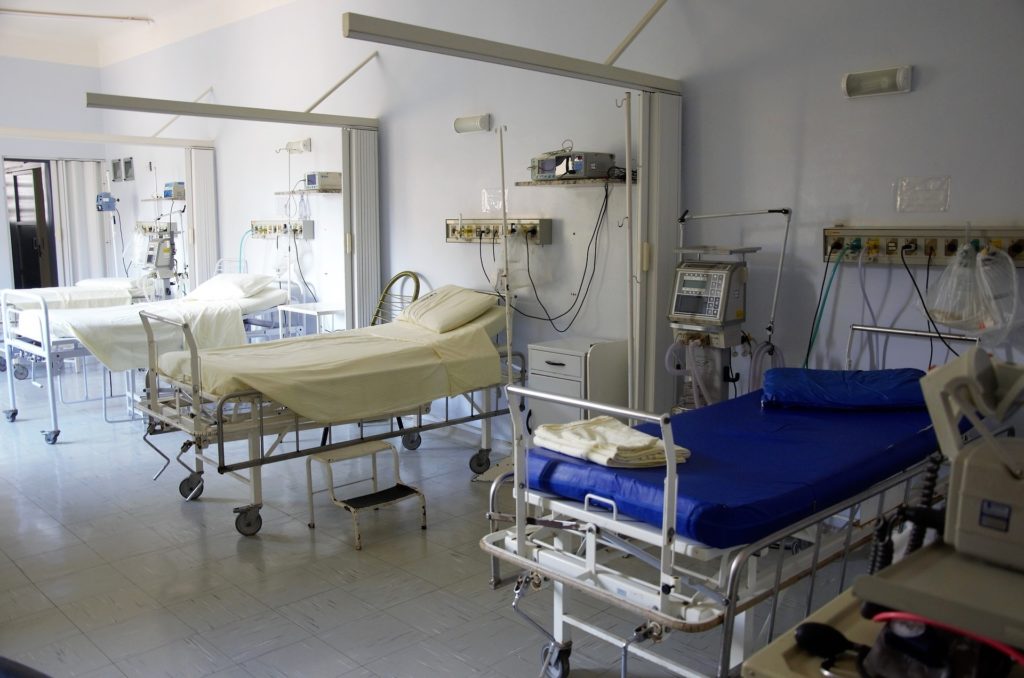- Calls to this hotline are currently being directed to Within Health, Fay or Eating Disorder Solutions
- Representatives are standing by 24/7 to help answer your questions
- All calls are confidential and HIPAA compliant
- There is no obligation or cost to call
- Eating Disorder Hope does not receive any commissions or fees dependent upon which provider you select
- Additional treatment providers are located on our directory or samhsa.gov
Seeking Eating Disorder Hospitalization During COVID-19

COVID-19 virus has complicated the lives of many since it’s outbreak swept across the globe. What was once simple has become harder, and those things that were already considered challenging can feel impossible. The latter is likely familiar to those struggling with an eating disorder as they learn that the already daunting task of finding eating disorder hospitalization is further complicated by COVID-19’s impact.
“By disrupting typical modes of service delivery such as in‐person office visits with a health‐care provider, the COVID‐19 pandemic exacerbates the already pervasive problem of unmet treatment needs among individuals with an eating disorder [1].” As a result, one survey found that half of the respondents were experiencing disordered eating symptoms but not receiving any treatment at all [2].
Many treatment centers are doing their best to step up to this challenge and find a way to provide safe support for those who are bravely seeking help for their disorder.
Starting Out
Before even beginning to search for eating disorder hospitalization programs, talk through the reality of the situation either with your recovery team, support system, therapist, or in your journal. Practice acceptance of the unique circumstances you are facing by first acknowledging them.
You are struggling with an eating disorder that is taking over your daily life during a time when a global pandemic has also challenged your daily life.
Finding an eating disorder hospitalization program may be difficult. You may need to contact a few places, and protocols may be different than you expected or would typically experience. This will be hard, but that does not mean it is impossible.
Finding Eating Disorder Hospitalization
Begin searching for a hospital in the same way you would before COVID:
- Ask your recovery team
- Call your insurance to see who they have in-network
- Use online advocacy sites such as the National Eating Disorders Association or Eating Disorder Hope to see what programs are near you
 Consider what information is important for you to know in regards to your treatment:
Consider what information is important for you to know in regards to your treatment:
- Do you need eating disorder insurance to cover your treatment?
- Do you want to stay near your home?
- Are you willing to travel?
- What are the facilities like?
- What type of treatments are emphasized?
In addition to these questions, you will likely have inquiries about COVID, such as asking about social distancing, hygiene, and cleanliness, whether services are conducted face-to-face, whether wearing masks are mandated, etc. All of these are questions that can be addressed by a treatment program’s intake department. Don’t be afraid to contact multiple hospitals and ask them every question you have to help you find the hospital that is best for you.
This is a new world that none of us have experienced until now. We are learning and navigating as we continue to move ahead. It is okay for you to have questions and the need for more information before making this decision.
Eating Disorder Hospitalization Funding
Due to COVID-19, many insurance companies have changed what services their policies cover. For example, many insurances now cover virtual services with the understanding that face-to-face treatment is currently unsafe.
Even if you have discussed eating disorder hospitalization coverage with your insurance prior to the COVID outbreak, it is worth speaking with them again to determine what they are willing to cover.
Don’t Let COVID Be a Deterrent
COVID has undoubtedly made providing or receiving eating disorder hospitalization more challenging, but as many other fields have done, the eating disorder treatment field has made swift adjustments to meet the needs of those struggling.
For example, Eating Recovery Center specifies that they have “implemented additional patient safety protocols, including enhanced pre-admission screening, mandatory daily medical screenings for patients and staff, restrictions on visitor access, more frequent hygiene breaks and enhanced infection control training [3].” Many inpatient treatment centers have done the same, adjusting their protocols as best as they can to follow CDC guidelines for safety while still serving those in need.
It is understandable that you may need eating disorder hospitalization during these challenging times. The stress of the changes and the unknown, the daily life adjustments, and the isolation can all be triggering.
Be kind to yourself as you accept this reality and seek the help that you need to find recovery within it.
Resources:
[1] Weissman, R.S. (2020). Access to evidence-based care for eating disorders during the COVID-19 crisis. International Journal of Eating Disorders, 53:5. [2] Kehres, E. (2020). UNC researchers study effects of eating disorders during a pandemic. Retrieved from https://chapelboro.com/news/health/unc-researchers-study-effects-of-eating-disorders-during-a-pandemic. [3] Unknown (2020). Insight responds to coronavirus: our treatment protocols. Eating Recovery Center. Retrieved from https://www.eatingrecoverycenter.com/about-us/covid/treatment-protocols.About the Author:
 Margot Rittenhouse, MS, PLPC, NCC is a therapist who is passionate about providing mental health support to all in need and has worked with clients with substance abuse issues, eating disorders, domestic violence victims, and offenders, and severely mentally ill youth.
Margot Rittenhouse, MS, PLPC, NCC is a therapist who is passionate about providing mental health support to all in need and has worked with clients with substance abuse issues, eating disorders, domestic violence victims, and offenders, and severely mentally ill youth.
As a freelance writer for Eating Disorder Hope and Addiction Hope and a mentor with MentorConnect, Margot is a passionate eating disorder advocate, committed to de-stigmatizing these illnesses while showing support for those struggling through mentoring, writing, and volunteering. Margot has a Master’s of Science in Clinical Mental Health Counseling from Johns Hopkins University.
The opinions and views of our guest contributors are shared to provide a broad perspective on eating disorders. These are not necessarily the views of Eating Disorder Hope, but an effort to offer a discussion of various issues by different concerned individuals.
We at Eating Disorder Hope understand that eating disorders result from a combination of environmental and genetic factors. If you or a loved one are suffering from an eating disorder, please know that there is hope for you, and seek immediate professional help.
Published August 13, 2020, on EatingDisorderHope.com
Reviewed & Approved on August 13, 2020, by Jacquelyn Ekern MS, LPC

The EatingDisorderHope.com editorial team comprises experienced writers, editors, and medical reviewers specializing in eating disorders, treatment, and mental and behavioral health.

